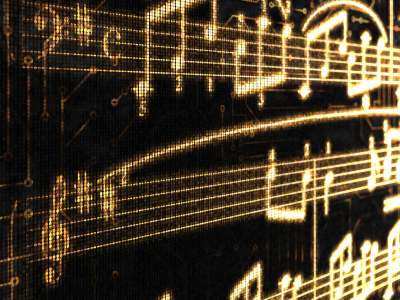

Music-buying money was in short supply, so researching my purchases was crucial. I could maybe afford to pick up a new album every two weeks, and I constantly feared getting stuck with a disc that wouldn’t hold my interest until I could afford another one. If I had already heard a record through a friend, on the radio, or caught a video that I liked on MTV, there was little need for trepidation: I already knew I connected with what the artist was doing; now I just wanted to hear more of it.
But I always got more of a rush out of buying something without hearing it first. Taking a chance, knowing that I was gambling with both my money and my time, was invigorating to me. And, sure: sometimes I lost. I ended up with more than a few albums that didn’t end up in heavy rotation in my stereo. But when I went for it and won, the victory felt personal. I found bands and artists that were mine and mine alone, and I gleaned a sense of achievement from the work I put in to find them.
I read music magazines voraciously, studying record reviews and making mental notes on what albums to look for the next time I was at the record store. I was learning to connect with album covers, song titles, and band names, and was intrigued by the choices artists made in regards to each. I learned which publications had reliable recommendations, and even which writers shared the same tastes that I did. I found record labels that housed some of my favorite bands, and kept an eye open for their other releases.
My free time was spent pursuing music that I hadn’t yet heard, and I seemed to be living my life in anticipation, waiting for the next band that I didn’t yet know existed, but just might love.
Now, before this completely deteriorates into the sad ramblings of a guy in his mid-30s on a things-were-better-in-my-day trip (too late?), I should get to my point, or at least pose my question: has our easy (and often free) access to music lessened the impact it has on our lives? Is it as special as it used to be?
I’ll be the first to admit that not only am I guilty of romanticizing my youth a little bit for the sake of the story, but I was also surely more prone to be deeply affected by music during my angsty teenage years. So while it’s easy for me to look back fondly at those trips to the record store (or the mall, or the music section at the local department store) from my past, I can’t let myself forget the bad parts: It wasn’t always easy to get there. You couldn’t count on listening to records before you bought them. You could get all the way to the store and they wouldn’t have what you were looking for.
And, honestly, as much as the hoops you had to jump through to hear new music back then added to the pleasure or pain (and eventual memories) of the payoff, waiting to hear records sucked. I would have killed for instant access to more music when I was 15 years old. But would I have appreciated it as much if I knew all that was between me and those songs was a Google search and two minutes of waiting? I really don’t know.
At this point we can all agree that record sales aren’t what they used to be, and file sharing (or whatever you want to call it) is definitely to blame for that. The monetary value placed on music can’t be the same as it used to be, because it just isn’t the same. But has that spilled over into listeners also not putting as much value in its intangible qualities?
With any song we want to hear almost always being readily available, has music lost some of its mystery, intrigue, and value? And if so, what can artists do to make sure that the music remains special? What are you doing to keep listeners engaged and excited?
-Brad at CD Baby